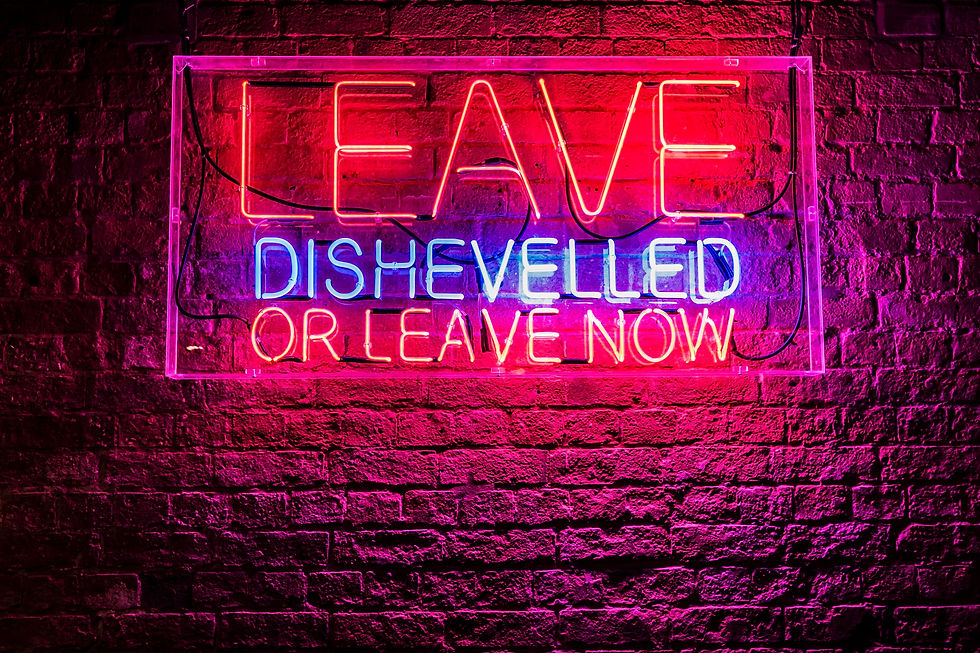When Friendships End: Navigating Breakups and the Emotional Fallout
- Rebecca Rosalez, LCSW-S, SEP, EMDR-CIT

- Jun 26, 2025
- 2 min read
Updated: Jun 28, 2025
Ending a friendship can be equally, if not more, painful than a romantic breakup. Friendships rely on trust, shared experiences, and mutual support. Therefore, when a friendship concludes, particularly in challenging or ambiguous situations, it can result in feelings of grief, confusion, and intense emotional reactions.
Reasons We End Friendships
Friendship breakups don’t always come with a clear ending or mutual closure. Often, they happen because of:
Growing in different directions
Repeated boundary violations
Emotional labor imbalance
Betrayal or unresolved conflict
Realizing the relationship is no longer safe or reciprocal
Sometimes, ending the relationship is a protective act—especially if you've been chronically dismissed, gaslit, or harmed by patterns of narcissism or control. Other times, it’s a quiet drifting apart. But even when you know it’s for the best, it can hurt deeply.
The Aftermath of the Breakup: Reactivity and Emotional Whiplash
Friendship breakups can stir up a lot of emotional reactivity—on both sides. You might experience guilt, anger, sadness, or even shame. The other person may react defensively or lash out, especially if they feel blindsided or unwilling to take accountability.
Reactivity might look like:
Passive-aggressive comments or posts
Denial, gaslighting, or rewriting history
Personal attacks or character assassinations
Attempts to pull others into the conflict
Sudden silence or emotional withdrawal
These responses are often about unprocessed grief, fear of abandonment, or a bruised ego. But they can also be a way to avoid deeper accountability or deflect from harm caused in the relationship.
How to Cope with the Fallout
Acknowledge the Loss Grieve the friendship. Just because it needed to end doesn’t mean it wasn’t meaningful at one point. Give yourself permission to feel the weight of that loss.
Set Boundaries If the other person is reactive or lashing out, you are not obligated to continue engaging. Protect your peace. It’s okay to go no-contact or limit communication.
Don’t Engage in Retaliation As tempting as it is to clap back or defend yourself publicly, feeding into the drama only extends the hurt. Responding from a grounded place honors your healing more than any comeback ever could.
Talk to Someone Safe Process the experience with a therapist, trusted friend, or support group. Reflecting with someone who can hold space for your emotions without judgment can help you move through the pain.
Honor the Lesson Every relationship teaches us something. Maybe it taught you how to speak up, how to trust your intuition, or how to love yourself enough to walk away.
Healing Is Not Linear
You may feel strong one day and heartbroken the next. That’s normal. Ending a friendship can unravel years of connection, shared memories, and even your sense of self. Give yourself grace.
You’re not weak for hurting—you’re human.
And if someone chooses to weaponize your grief or use your healing against you, let that be confirmation of why walking away was necessary. Your growth doesn’t require their understanding.
At Abundance Counseling Services, we hold space for all kinds of grief—including the often overlooked pain of friendship breakups. Healing from relational wounds takes time, reflection, and self-compassion.
You deserve to feel safe, seen, and whole in the connections you choose to keep.













This is great! I struggled for many years over the end of a friendship, that I thought would be lifelong. I still have no idea what happened, but I’ve been able to let go of all the questions. I’m grateful for the time we had and I wish her well - but it was definitely a process!
Love this! I’ve had some friend breakups that still sting far more than any romantic relationship I left behind. Thanks for sharing!